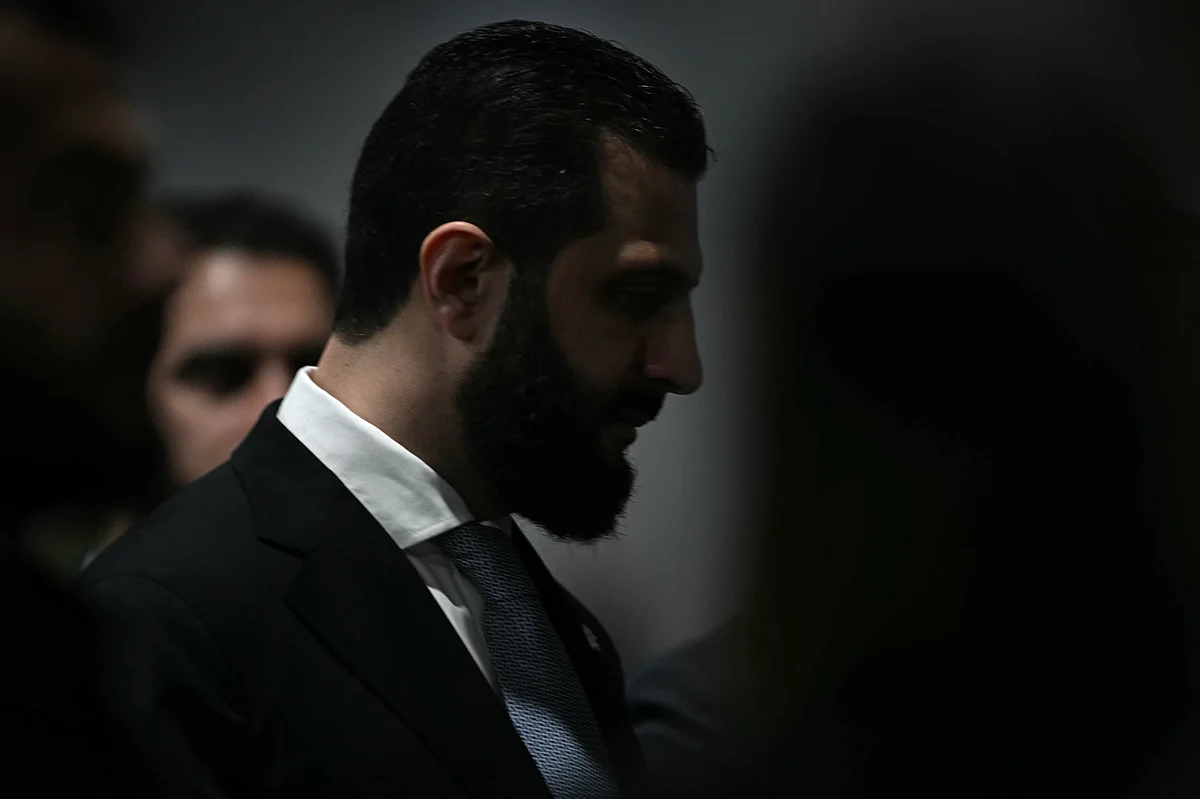
UN Lifts Sanctions On Syria's President Ahead Of His White House Meeting With Trump
The United Nations Security Council has removed sanctions on Syrian President Ahmed al-Sharaa, who is due to meet US President Donald Trump at the White House on Monday.
The US-drafted resolution on Thursday also lifted sanctions on Syrian Interior Minister Anas Khattab. It received 14 votes in favor, while China abstained.
Recommended For You Up to Dh1 billion fine as UAE boosts Central Bank powers under new financial lawWashington has been urging the 15-member Security Council for months to ease Syria sanctions. Trump announced a major US policy shift in May when he said he would lift US sanctions on Syria.
Stay up to date with the latest news. Follow KT on WhatsApp Channels.
"I think he's doing a very good job," Trump said later on Thursday of Sharaa. "It's a tough neighborhood, and he's a tough guy, but I got along with him very well. And a lot of progress has been made with Syria."
"We did take the sanctions off Syria in order to give them a fighting shot," he told reporters in Washington.
After 13 years of civil war, Syria's President Bashar al-Assad was ousted in December in a lightning offensive by insurgent forces led by the Islamist Hayat Tahrir al-Sham (HTS).
Formerly known as the Nusra Front, HTS was al Qaeda's official wing in Syria until breaking ties in 2016. Since May 2014, the group has been on the UN Security Council's al Qaeda and Islamic State sanctions list.
A number of HTS members are also under UN sanctions - a travel ban, asset freeze and arms embargo. Those sanctions on Sharaa and Khattab have now been lifted.
UN sanctions monitors have seen no "active ties" this year between al Qaeda and HTS, according to a UN report.
Why did China abstain?
China abstained because the resolution did not properly address its concerns about the counterterrorism and security situation in Syria, said China's UN Ambassador Fu Cong.
China has long been vocal about its concerns with the fate of the Eastern Turkistan Islamic Movement (ETIM) in Syria. Uyghur fighters from China and Central Asia are members of the group. Rights groups accuse Beijing of widespread abuses of the mainly Muslim ethnic minority.
Fu said the resolution adopted on Thursday "makes it clear" that Syria should "take decisive actions to combat terrorist acts and respond to the threat of FTFs (foreign terrorist fighters), which include ETIM in Syria."
Russia's UN Ambassador Vassily Nebenzia said Moscow supported the brief, succinct resolution because it "most importantly... reflects the interests and aspirations of the Syrian people themselves."
Russia diplomatically shielded its ally Assad during the war, casting more than a dozen vetoes at the Security Council, on many occasions backed by China. The council met several times a month throughout the war to discuss Syria's political and humanitarian situation and chemical weapons.
After years of Security Council division, Syria's UN Ambassador Ibrahim Olabi praised the decision on Thursday as a "message of support for Syrian women and men in their effort to rebuild their homeland and restore their lives."
"The new Syria will be a success story. It will be a shining model that proves that the optimal path in international relations is positive engagement and constructive cooperation. If there are concerns, Syria is fully prepared to address them with sincere intent based on mutual respect," he told the council.

Legal Disclaimer:
MENAFN provides the
information “as is” without warranty of any kind. We do not accept
any responsibility or liability for the accuracy, content, images,
videos, licenses, completeness, legality, or reliability of the information
contained in this article. If you have any complaints or copyright
issues related to this article, kindly contact the provider above.


















Comments
No comment